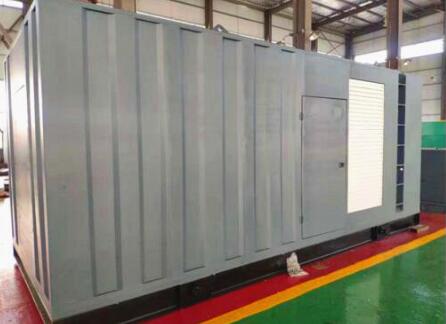Container gensets, or generator sets, play a crucial role in providing power to shipping containers and various mobile applications. When it comes to determining how long a container genset can run, several factors come into play. In this article, we'll explore these factors and shed light on the considerations that influence the runtime of container gensets.
1. Fuel Capacity: The Initial Benchmark
The fuel capacity of a container genset is a fundamental factor that dictates its runtime. The larger the fuel tank, the longer the generator can run before requiring a refill. Container gensets come in various sizes, and their fuel capacities can range from relatively small to larger tanks that allow for extended operation without interruptions.
2. Fuel Consumption Rate: Efficiency Matters
While fuel capacity sets the stage, the fuel consumption rate is equally important. The efficiency of a container genset in converting fuel into electrical power determines how long it can sustain operation on a full tank. Modern container gensets are designed with fuel-efficient technologies to optimize power generation and minimize fuel consumption.
3. Load Demand: Dynamic Usage Considerations
The load demand placed on a container genset significantly influences its runtime. The generator's capacity to produce power is directly correlated with the electrical load it is supporting. A higher load demand requires more fuel consumption, potentially shortening the runtime. Monitoring and managing load demands are essential for optimizing the operational duration of a container genset.
4. Maintenance and Service Intervals: Ensuring Longevity
Regular maintenance and adherence to service intervals are crucial for the longevity and optimal performance of container gensets. Neglecting maintenance can lead to decreased efficiency, increased fuel consumption, and potential breakdowns. A well-maintained genset is more likely to operate efficiently and provide consistent power output over an extended period.
5. Environmental Conditions: Impact on Performance
The environmental conditions in which a container genset operates also play a role in determining its runtime. Factors such as ambient temperature, humidity, and altitude can impact the efficiency of the generator. Extreme conditions may necessitate adjustments or additional measures to ensure the generator operates optimally.
6. Fuel Type: Diesel vs. Gasoline
The type of fuel used in a container genset can affect its runtime. Diesel gensets are known for their fuel efficiency and are commonly used in applications where extended runtime is crucial. Gasoline gensets, while portable, may have shorter runtimes due to higher fuel consumption. Choosing the appropriate fuel type depends on specific requirements and operational considerations.
7. Automatic Start-Stop Systems: Energy-Efficient Automation
Some container gensets come equipped with automatic start-stop systems that enhance energy efficiency. These systems allow the generator to start automatically when power is needed and shut off when the demand decreases. Implementing such automation can optimize fuel consumption and extend the overall runtime of the genset.
Closing Considerations: Contact Us for Container Genset Solutions
In conclusion, the runtime of a container genset is influenced by a combination of factors, including fuel capacity, fuel consumption rate, load demand, maintenance, environmental conditions, fuel type, and automation features. Understanding these factors is essential for determining the appropriate container genset for specific applications and optimizing its performance.
If you need reliable container genset solutions, don't hesitate to contact us. As a trusted supplier in the industry, we provide a range of high-quality container gensets designed for various applications. Our team is ready to assist you in finding the right generator set that meets your requirements and ensures a consistent power supply.

Comments
Post a Comment